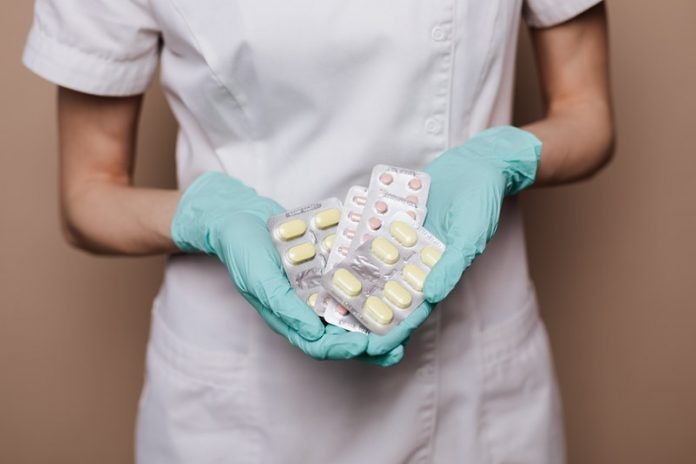
In a new recommendation from WHO, researchers say the drug baricitinib (a type of drug known as a Janus kinase (JAK) inhibitor, also used to treat rheumatoid arthritis) is strongly recommended for patients with severe or critical COVID-19 in combination with corticosteroids.
Their strong recommendation is based on evidence that it improves survival and reduces the need for ventilation, with no increase in side effects.
The WHO experts note that baricitinib has similar effects to other arthritis drugs called interleukin-6 (IL-6) inhibitors so, when both are available, they suggest choosing one based on cost, availability, and clinician experience.
It is not recommended to use both drugs at the same time.
However, the experts advise against the use of two other JAK inhibitors (ruxolitinib and tofacitinib) for patients with severe or critical COVID-19.
This is because low certainty evidence from small trials failed to show benefit and suggests a possible increase in serious side effects with tofacitinib.
In the same guideline update, WHO also makes a conditional recommendation for the use of the monoclonal antibody sotrovimab in patients with non-severe COVID-19, but only in those at highest risk of hospitalization, reflecting trivial benefits in those at lower risk.
A similar recommendation has been made by WHO for another monoclonal antibody drug (casirivimab-imdevimab).
The experts also note that there were insufficient data to recommend one monoclonal antibody treatment over another—and they acknowledge that their effectiveness against new variants like omicron is still uncertain.
As such, they say guidelines for monoclonal antibodies will be updated when additional data become available.
These recommendations are based on new evidence from seven trials involving over 4,000 patients with non-severe, severe, and critical COVID-19 infection.
To make their recommendations, the panel considered a combination of evidence assessing relative benefits and harms, values and preferences, and feasibility issues.
If you care about COVID, please read studies that two doses of vaccines cannot fully against Omicron, and scientists find new antibody treatment for COVID-19.
For more information about health, please see recent study that Omicron variant strongly resistant to current antibodies, and results showing that Moderna COVID vaccine elicits the strongest immune responses.
The study is published in The BMJ. One author of the study is Arnav Agarwal.
Copyright © 2022 Knowridge Science Report. All rights reserved.




